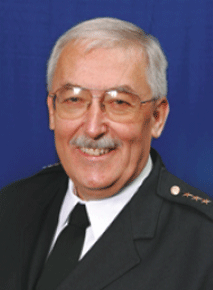
The Special Olympics has been an empowering and joyful part of international athletics since 1968, when the first games were held at Chicago’s Soldier Field. As we all know, the Special Olympics is an opportunity for athletes who live with intellectual disabilities to come together in the spirit of friendly competition. As they compete, Special Olympians build discipline, enthusiasm, and self-confidence. Parents, neighbors, teachers, and friends bear witness to the athletes’ achievements, while the Olympians’ communities look on with pride.
However, I believe that the Special Olympics is much more than a simple athletic competition. It is a vehicle for change that not only provides the athletes with an opportunity to see themselves in a new light but also enables society as a whole to reevaluate preconceptions of the intellectually disabled.
Why is the Special Olympics so important? The athletes who participate in the Special Olympics have, in most cases, had to overcome more than just their intellectual challenges. They and their families have struggled to overcome a lifetime of social barriers erected by an uncertain society that lacked accurate information about the capabilities and expectations of people with disabilities.
All too often, individuals with intellectual disabilities are discouraged or barred from playing sports when they are younger. They are kept from playing with other children out of fear of injury to themselves or others. They are denied instruction on athletic pursuits, such as swimming, out of a flawed belief that they lack the capacity to learn. They are rarely allowed to experience the joy that comes from overcoming challenges and the camaraderie that comes from being part of a team.
They are, quite simply and tragically, ostracized from society.
This is not to say that progress has not been made over the last few decades. Thankfully, we have moved away from the days of institutionalization and isolation and have reached a point where the use of such derogatory terms as “retard” or “retarded” is no longer viewed as acceptable. These are important and positive accomplishments.
It is my belief that the Special Olympics is a big part of the reason for that change. The Special Olympics has provided athletes with an opportunity to demonstrate their abilities and, as a result, has helped tear down the false perceptions that have surrounded individuals with intellectual disabilities for far too long. The Special Olympics has allowed society at large to see what wonderful individuals Special Olympians truly are.
It is for these reasons that I am so proud of the vital role that the Torch Run has played in supporting the Special Olympics program. As you may know, the Torch Run is an international series of relays run by law enforcement officers to raise money for the Special Olympics. A Torch Run is held each year in every state throughout the United States and in many countries around the world. The Torch Run is the Special Olympics’ largest grassroots fund-raiser, with proceeds going directly to the state or nation where they were generated. In fact, over $34 million was raised through your efforts.
The Torch Run began in 1981, when Richard LaMunyon, chief of police in Wichita, Kansas, saw an urgent need to raise funds for and increase awareness about the Special Olympics. He saw the idea for the Torch Run as a way to involve local law enforcement personnel with the community and with the Special Olympics. After three years of successful runs in Kansas, Chief LaMunyon presented the program to the IACP.
This year marks the 25th anniversary of the commitment that the IACP made to the Torch Run, and I am proud to report that today more than 85,000 law enforcement officials in 35 countries proudly serve as “guardians of the flame.”
IACP is the founding law enforcement organization of this event, and our members continue to support these critical fund-raising efforts. It is through the dedicated work of law enforcement officers around the world that Special Olympians have been given the opportunity to develop self-confidence and to enhance their physical and social skills. Law enforcement efforts also provide awareness and understanding for the needs of these special members of our communities.
The Torch Run is an experience that benefits not only the Special Olympics and its athletes but also the officers who participate, the agencies for which they work, and the communities they serve. Participation in the Torch Run strengthens the camaraderie of officers within an agency and among different agencies in a given state; it can also help foster a sense of positive community outreach for agencies and their staff.
If you and your agency are already active in the Torch Run or the Special Olympics, you have my thanks. If not, I challenge you to participate. Go to an event and hang a medal around the neck of an athlete. It will touch your heart, and it will change you forever—it did for me. ■


